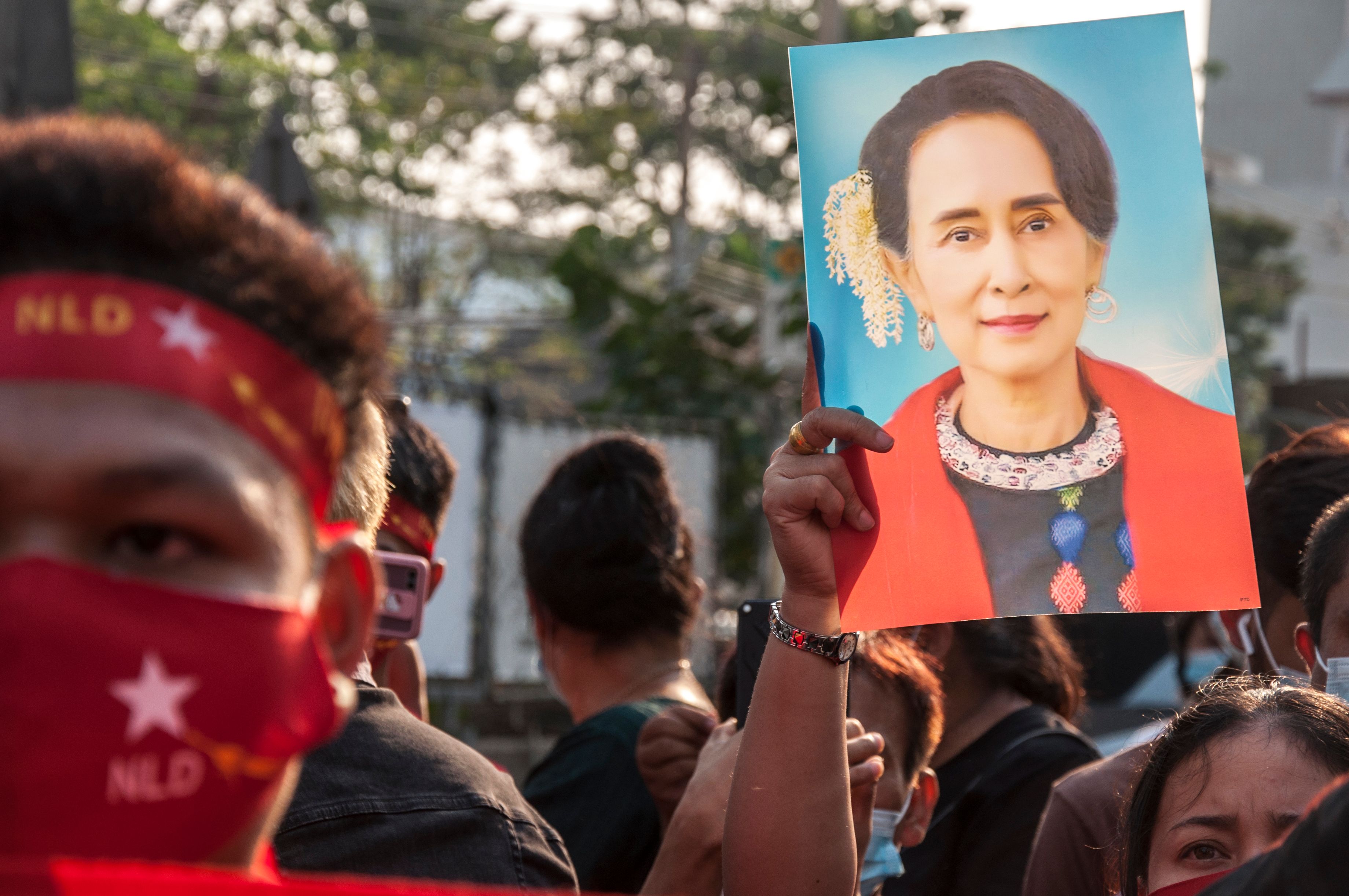Coup in Myanmar—Democratisation Interrupted

What happened in Myanmar?
In the early morning of 1 February, the armed forces of Myanmar (Tatmadaw) took control of the country and imposed a state of emergency for at least one year. The detained include the head of the ruling National League of Democracy (NLD) and State Counsellor Aung San Suu Kyi, President U Win Myint, members of the government, parliamentarians, and civil society leaders. The internet and mobile network were temporarily turned off, media activity was limited, and soldiers appeared on the streets. Vice President U Myint Swe handed over the highest authority in the country to the commander-in-chief of the defence forces, Gen. Min Aung Hlaing, citing Art. 417 of the constitution. However, this action is unlawful as this article indicates that the president, not the vice-president, is the person authorised to make such a decision. The Tatmadaw announced that it would hold another election “as soon as possible”.
What were the reasons for the coup?
The direct reason for the military’s seizure of power were the allegations of irregularities and fraud during the elections held on 8 November 2020. The ruling NLD achieved a stunning victory, winning 83% of the available seats, and improving on its 2015 result, while the party of the former military junta, the USDP, suffered a severe defeat (winning just 5% of seats). The new parliament was to convene for the first time on 1 February to approve the election results and begin the process of forming a second NLD government. The allegations of electoral fraud are not credible. The military actually began to fear that it was losing its grip in the “controlled democracy” system. The constitution prepared by the previous junta in 2008 gave it decisive influence on the situation in the country. The army in 1990 cancelled the results of the first free elections in Myanmar, which the NLD had won.
What does the coup mean for Myanmar’s internal situation?
The military takeover ends a decade of democratisation that started in 2011. Although the domestic situation has remained calm so far, further persecution of the opposition or media may provoke mass protests and violence. The military’s actions will ultimately undermine the system it created and within which it held a favoured position. It will have to either retain full power now or lose it completely. The latter seems less likely for now. The coup is also bad news for the ethnic minorities waging a civil war since the 1950s. The peace was an indispensable element of the democratisation process, and the next peace conference was to take place after the formation of the new government. The military may try instead to defeat the armed opposition groups by force, which could mean an escalation of the conflict. Instability and international isolation will also make it difficult to fight the COVID-19 pandemic and pursue economic recovery.
What are the international consequences?
The coup will deepen Myanmar’s international isolation, caused by the 2017 expulsion of the Rohingya Muslim minority. The U.S., EU, and UK strongly condemned the military’s actions and called for the release of political leaders and a return to the democratic process. Western countries are likely to impose additional sanctions on Myanmar, but the Tatmadaw will probably be able to secure the support of China or Russia in blocking UN sanctions (recent ministerial visits to Myanmar by China and Russia confirmed their good relations). As a result, Myanmar’s dependence on China will increase. The takeover also shreds hopes of the Rohingya’s repatriation from Bangladesh. The coup may, however, improve Aung San Suu Kyi’s image as a defender of democracy and human rights, strained by her silence on the persecution of the Rohingya.
What can the EU do?
In addition to condemning the coup, the EU can use a number of instruments to pressure Myanmar. The partial EU sanctions on senior military personnel in Myanmar imposed after the expulsion of the Rohingya do not yet apply to Gen. Hlaing or military-linked businesses, so an expansion of sanctions can be expected. However, economic instruments may be more powerful. The EU is Myanmar’s second-largest export market (accounting for 18.2% of its exports) and the bloc is considering taking away the latter’s trade preferences. To make the pressure sharper, the EU may propose a joint initiative with the Biden administration on Myanmar. Closer policy coordination with EU partners in the region, including India and ASEAN members, also will be important. However, the situation in Myanmar may become another area in which the EU will need to cooperate with China.


